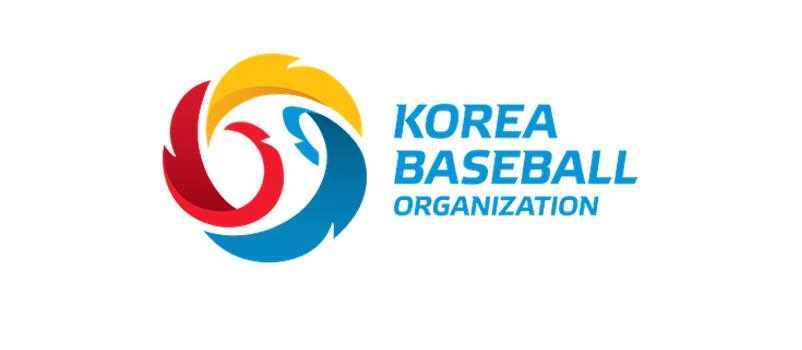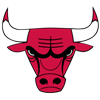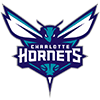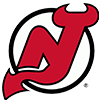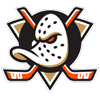Are you new to daily fantasy sports and looking to pick up a new hobby while stuck at home? Or, are you a daily fantasy baseball veteran who's interested in playing the only baseball contests available at this time? Either way, we've got you covered. This guide will go over the basics of joining a KBO contest on DraftKings and FanDuel as well as the differences between contests on those websites. It will also point you towards the resources we have at RotoWire to help you set your lineups.
Joining a Contest
On both websites, games can be found on the Lobby page. On DraftKings, those games are found under the MLB tab. On FanDuel, you'll find KBO contests under the Baseball tab.
DraftKings offers the following types of contests, which you can filter for along the left side of your screen:
Casual: These contests are only open to players who have no experience badges, which are earned after participating in 50 contests or by winning a large payout.
Tournaments: This includes the majority of contests, including any not covered in the groups below. Typically, the top prize pays out a large multiple of the entry fee, with prizes scaling down for the top handful of finishers.
Head to Head: Games against just one other player.
50/50s - Exactly half of players in these contests will win, with winners earning slightly less than double their entry fee. All winners earn the same prize regardless of their final position.
Double-Ups - Slightly less than half of players in these contests will win, with winners earning exactly double their entry fee. All winners earn the same prize regardless of their final position.
Multipliers - A small number of players in these contests will be victorious, with winners taking home some multiple (typically three or 10) of their entry fee.
Satellites & Qualifiers - These contests don't pay out in cash, but instead offer prizes in the form of tickets, which offer free entry into future contests, which may be KBO contests or contests of other types.
FanDuel offers the following types of contests, which you can filter through near the top of your screen:
Tournaments - As with DraftKings, a broad category which typically pays the top entry a large multiple of the entry fee, with scaled-down prizes for several spots below the top.
Beat the Score - Not offered for KBO contests as of writing.
Multipliers - All winners in these contests will earn the same prize, regardless of final position. Winners earn some multiple (typically two or three) of their entry fee.
Head to Heads - Square off against a single opponent.
3-100 Player - A self-explanatory category which includes smaller pools than tournament contests do. Prize structures vary with contest size, but in contests with multiple winners, prizes scale down in a similar matter to tournaments.
50/50s - As with DraftKings, the top half of players will win prizes in these contests, with prizes coming in slightly lower than double the entry fee.
On both websites, you can also choose which slate to play. While MLB daily-fantasy veterans may be used to full-day slates, evening-only slates, late-night slates, etc., all games on a given day start at the same time in the KBO. That means the only options available on both websites are for the full slate (called "Classic" on DraftKings and "Full Roster" on FanDuel) and single games (called "MLB Showdown" on DraftKings and "Single Game" on FanDuel). On both websites, the single-game slates require players to pick smaller rosters, and both websites have you select a player or two whose points count extra.
Differences Between Websites
DraftKings' KBO games are identical to its MLB offerings. For standard, full-game slates, you'll select two pitchers, one catcher, one first baseman, one second baseman, one third baseman, one shortstop and three outfielders. You'll have a $50,000 salary cap, with hitter salaries ranging from $2,000 to around $6,000 and pitcher salaries ranging from $4,000 to around $9,500.
FanDuel has elected to go with a simplified version of their typical MLB contests. For standard, full-game slates on FanDuel, you'll select one pitcher, two infielders (which also includes catchers), two outfielders and two utility hitters. On FanDuel, rather than selecting an individual pitcher, you'll select a team starting pitcher. FanDuel's salary cap is $100, with hitter salaries ranging from $5 to approximately $16 and pitcher salaries coming in around $20 to $27.
The full scoring systems can be found on both websites, but the differences are minor. On the whole, the two platforms reward strong performances to the extent you'd expect them to. The minor differences between the two aren't necessarily the sort of thing you could gain much profit from exploiting. FanDuel rewards RBI (3.5 pts) slightly more than runs (3.2 pts), giving slightly more credit to both than the give to singles (3 pts), while DraftKings gives just two points for both while also giving three points for singles. On-base percentage matters slightly more on FanDuel, as they give three points per walks and HBPs compared to two for both on DraftKings.
On the pitching side, points are slightly scaled down across the board on DraftKings, though you'll be rostering two pitchers on that website. Notably, DraftKings cares about WHIP, penalizing pitchers for walks and hits allowed, whereas pitchers on FanDuel can load the bases without penalty as long as they don't give up a run. Additionally, pitchers on FanDuel can earn bonus points for a quality start, while pitchers on DraftKings don't get a bonus unless they pitch a complete game, a shutout or a no-hitter. Again, though, none of these changes are likely to alter your lineup decisions by all that much. If you think a player is going to have a good game and will be good value for his price, don't sweat too much whether he'll be getting two or three points for his walks.
RotoWire Tools
RotoWire has leaned into KBO DFS coverage. Here are the tools we're offering:
Lineup Optimizer - With projections for every player in every game, the Lineup Optimizer can generate one or hundreds of lineups for you. Play around with including or excluding various players until you find a lineup you're happy with. You can also use the Optimizer to generate stacks of players from specific teams to target an exploitable matchup.
Daily Lineups - This page will show the expected lineups for every game. Once lineups have been confirmed (which typically happens roughly an hour before first pitch), this page will show confirmed lineups.
Injury Report - A self-explanatory list of players you'll want to avoid. This page lists each injured player in the KBO as well as their expected return date.
Cheat Sheets - We release a daily cheat sheet prior to each slate. These cheat sheets include recommendations for pitchers to target, expensive and cheap bats to look for, as well as stack recommendations.
@RotoWireKBO Twitter Account - Follow along for news and injury updates about all KBO players.
Basic Daily Fantasy Baseball Tips
If you're a veteran MLB daily fantasy player, you can probably skip this section. For those just getting started, here are a few things to keep in mind while building your lineups.
- Prioritize hitters who bat near the top of the lineup. These players will on average receive more plate appearances (and thus more chances to record points) than hitters who bat near the bottom of the lineup, and they're also more likely to have opportunities to drive in runs and be driven in themselves, as they're surrounded by better teammates.
- Prioritize the platoon advantage. Daily fantasy is all about efficiently using your budget, so there's little sense in turning down the extra bit of value that comes with the platoon advantage for a hitter wherever possible. This is especially true for avoiding lefty bats with southpaws starting for the opposition, but it's something to consider with righties as well.
- Prioritize hitters facing weak pitchers. Sure, the game's best hitters are the game's best hitters because they can get hits off anybody. Still, a hitter's expected performance varies considerably based on the pitcher on the mound, so this is another way to get a little bit of extra value out of your salary cap.
- Stack hitters from the same team wherever possible, especially in large contests. To finish in the top few spots in a larger contest, you'll need to have plenty of things break your way. It's easier for that to happen when you have the possibility for one of your hitter's homers driving in two other players in your lineup. A stack also sets you up to benefit as much as possible should the opposing starting pitcher have a terrible game.
Comments or questions? Sign up for a RotoWire account and ask Erik directly below!


